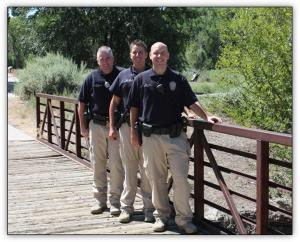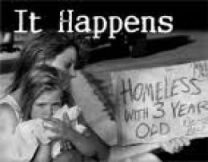Native Americans were the only people in the Americas up until the Wasichus (white men) arrived and claimed the Native Americans lands as their own. Dutch, French, Spanish, and Portuguese settlers came to the new world looking for many different things and while there were here they founded colonies and settlements. This new interaction between the Native people and the Wasichus started off on rocky footing and the results are still felt today. The white men as well as the Native Americans had a culture based on dehumanization of others who were not the same as they were. Cultural beliefs, greed, and even the meaning of the spoken words all played into this dehumanization between the different cultures.
The cultural beliefs of the white men who came across the seas were that of religion. Christianity to be more specific and looking into those beliefs there is one major thing that stands out. The great chain of being is the major underlying theme that helped to dehumanize all other people that are outside the normal culture. Ranking on the great chain of being starts with God then things are ranked down from there (Smith, pg. 46). Christians are just below the angels and animals follow suit down the line there after. Those who are not Christian are, at times, thought of as animals or sub-human. Now this does not mean that the native people did not share a common feeling toward outsiders. In some native tribes the name of the people actually means “human” and that lends to have an outlook that those who are not part of the tribe are less than human (Brody & Henretta 9). This mutual apprehension between the two groups led to fighting and eventually the enslavement of some Native Americans to work alongside Black slaves.
Some of the tribes moved past the initial sub-human ideas and helped the settlers in times of need but it was noted that even though the native population was helping out that a conquest of brute force could help to push them out of their land. The white men used tactics like enslavement or trickery to force the native people out. Deception was also used in ways like giving the native Americans blankets that had been infected with Small Pox, leading to an almost genocide of the native population.
As the Wasichus showed up in larger numbers the native population was forced further inland away from the lands that they were living on. The settlers, mostly coming from a poor backgrounds in small agricultural societies were able to claim land, live and work on their land in the new world (Brody & Henretta, pg. 14). This chance to gain status and accumulate wealth was something that was new and exciting to the White man. The native tribes of the northeast were not used to nor did they have the customs or materialism. As the trade routes became more traveled the settlers found that cash crops such as tobacco had a high retail. Because of this boom in the economics status more workers were needed to maintain the fields that were growing ever larger. A quote from Black Elk sheds light on the ever decreasing land for the Native Americans;
Once we were happy in our own country and we were seldom hungry, for then the two-leggeds and the four-leggeds lived together like relatives, and there was plenty for them and for us. But the Wasichus (white men) came, and they made little islands for us and other little islands for the four-leggeds, and always these little islands are becoming smaller, for around them surges the gnawing flood of the Wasichus; and it is dirty with lies and greed (Neihardt, pg. 5)
In my opinion I think that the dehumanization faced by the Native Americans is still being dealt with in today’s society. We hear about how some groups of people are like rats and run to their holes in the mountains, or how the net was sprung on the snakes of Al Qaeda. Using terms where humans are compared to animals is no different than having the term for your people mean “human.” The greed that was shown by the arriving white people and the tactics that were used to eradicate the locals were unethical and even the treatment faced by Native Americans today has a tone to which will perpetuate the cycle of dehumanization. That being said, there are teachers that are trying to change the current rhetoric when talking about the history of the Native Americans. Comparing the school age song, “Ten Little Indians” to that of “Ten Little Monkeys” shows how our culture has sustained the sub-human appearance of the native peoples of our country.
In conclusion, the massive influx of the Wasichus to a land that was fertile and open, meaning no one had a claim to it yet, led to the abuse of the native peoples. The greed of the new comers allowed for an entire population to almost be the subjects of genocide and those who survived had to live in fear of becoming slaves. Slaves on their own land, the land that they worked and which sustained them for hundreds of years. The lines of dehumanization were drawn early in both cultures, whether because of the language spoken and meanings of those words or because of the religion and beliefs of each population. Looking past the differences that each person has from one another is the only way that history will not continue to repeat itself.
Bibliography
Brody, David & Henretta, James “America: A Concise History” Volume One: To 1877. Web 16 May 2013.
Neihardt, John G. “Black Elk Speaks” First People: Web 26 May 2013. Retrieved from http://www.firstpeople.us/articles/Black-Elk-Speaks/Black-Elk-Speaks-Index.html
Smith, David L. “Less Than Human: Why we Demean, Enslave, and Exterminate Others” St Martin’s press. Book 15 April 2013.

